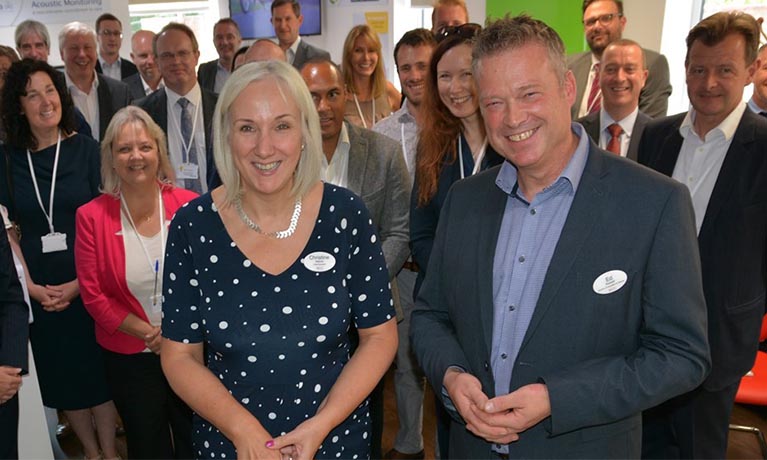By Richard Brooks, Ala Szczepura, Toshio Nomura and Rosie Kneafsey
Supporting the needs of an ageing population with increasingly high expectations of their care needs has long been a major challenge confronting a succession of government administrations. The tragic impact of the pandemic has only heightened the sense of urgency to invest in new solutions.
On the 1st December 2021 the government launched the White Paper – People at the Heart of Care, a 10-year reform vision looking at major investments in the adult social care system. This follows an announcement in September, where the Prime Minister identified £5.4 billion of funding for adult social care over the next 3 years, and £1.7 billion in major improvements across the adult social care system covering aspects including: technology and digitalisation, innovation and improvement; housing adaptation and improved information and advice.
Recognition of the importance of these advances reflects the pioneering work Coventry University is leading through its multi-disciplinary Data Driven Research and Innovation (DDRI) Programme by bringing together clinicians, engineers, data scientists, psychologists and designers to improve adult social care.
DDRI was launched in 2016 by Mark Collinson, the University’s Director of Strategic Developments in collaboration with Professor Szczepura from the Centre for Healthcare Research. Together with strategic care delivery partners (WCS Care and Orbit Housing extra care) a rolling programme of doctoral and other projects was co-designed. DDRI piloted the first ‘living lab’ test bed approach to care innovations such as sensors and robotics, environmental enhancement, and improved information systems to assist staff. WCS Care also established the first Innovation Hub in a UK residential care home, supported by funding from the University and a range of partners who provide products and services to the group. The DDRI model is also now being extended to innovations that can support unpaid carers and families, and to international collaborators in Japan involved in the development of a national ‘care science’ strategy.

Following an estimated initial £1m investment in the programme by Coventry University and its UK partners, the DDRI Programme is working with international academic partners to develop cost-effective solutions to key challenges faced by adult social care ranging from mental health conditions (e.g. cognitive impairment and dementia) to maintaining physical health (e.g. preventing falls).
As an example, acoustic monitoring cited within the White Paper as being of potentially life-saving significance, was first adopted by WCS Care in 2015 and its potential and their experience has been shared with other care providers via the WCS Innovation Hub from 2017 onwards. As part of the DDRI programme, a PhD student – Quang (Bob) Nguyen based in the Centre for Intelligent Healthcare – has been evaluating optimal use of an Acoustic Monitoring System to prevent night-time falls in people with dementia living in a care home setting, winning a prestigious JSPS studentships to visit Japan to compare and make recommendations on innovations being developed there for falls prevention.

Going forward, practitioner skills in digital and other emerging technologies will be critical for realising the government’s vision, as cited in the White Paper. Coventry University recently delivered the important skills report Digital skills gap in the healthcare sector. This report, presented to the Institute of Coding Industry Board and launched at a national event, recognises that transformational change is necessary within the care sector, while providing evidence that successful change will need to be founded on the basis of improved practitioner skills and institutional capacity for innovation. The report now forms the basis of conversations with Health Education England over future skills training and apprenticeship models for social care.
All these activities continue to inform other innovative enterprise development programmes in the Coventry Group such as the EIT Digital Health Technology Summer School (the only one in the UK). This programme worked with nine health sector organisations from multinationals to technology start-up to develop live industry challenge teams from across Europe competed to solve with viable prototypes. DDRI research students were instrumental in this programme helping teams address the challenge of adapting solutions to a care home setting. This course for computer scientists and medical practitioners highlighted the untapped appetite for further care innovations and the potential for scaling up improvements through new financial models.
In terms of the future, the potential for the sector is huge. The growth of sensors and artificial intelligence contributes towards an environment where older and disabled people’s care needs are much more accurately anticipated, reducing risks and freeing up staffing time for more individual one-to-one care. But in order for this to help both practitioners and the people they care for, new developments must start from an in-depth understanding of what both groups want, how they respond on a day to day basis to new innovations and close collaboration between industry, research and skills providers to ensure change can become embedded.
As the government moves ahead with this ten-year investment programme the care sector will need to work collectively to identify a solid evidence base for deciding investments in new tech solutions, which will require a multi-disciplinary approach and an in-depth knowledge of practitioner and care recipient needs.




Comments are disabled